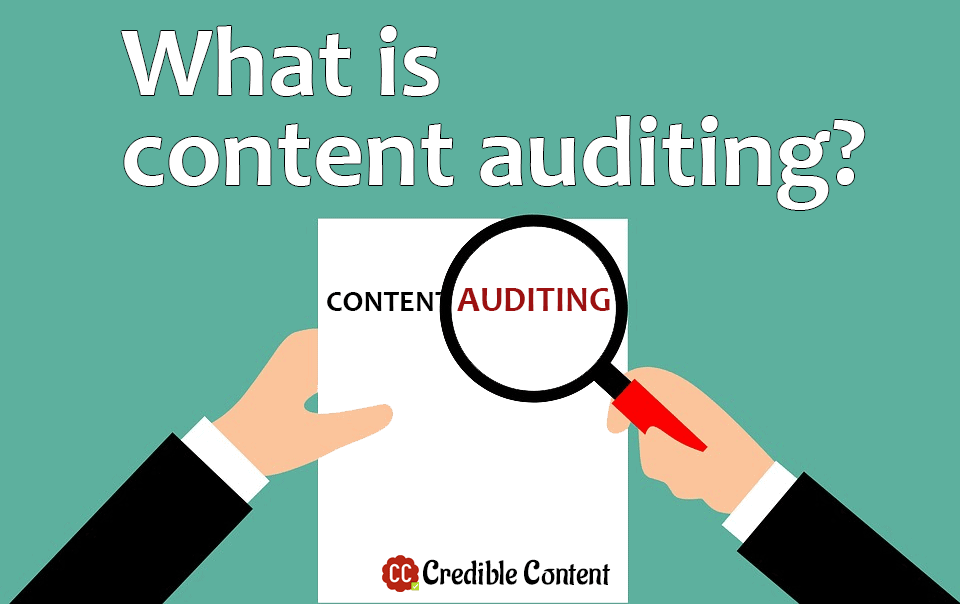For the past week I have been auditing my existing webpages.
In a hurry to build every section of the website, we often, quickly, build webpages without giving much care to the SEO aspect of those webpages.
These pages may be complete in themselves vis-à-vis delivering your core business message and conveying to your visitors how you can serve them, but in terms of SEO, you haven’t taken care of all the aspects of your content.
I exported the entire list of my main Credible Content business website webpages into an Excel sheet and now I try to rewrite the content of at least two webpages everyday.
Then, with color coding, I mark them done.
Is it improving my SEO?
For more than 1-1/2 months, I was bedridden.
I could only take care of client assignments and I couldn’t publish new content on my blog.
The content writing field is very competitive because practically, everyone can provide content writing services because most of the clients are unmindful of what is quality content.
Anyway, that’s an altogether a different issue, but one tends to lose search engine rankings very fast if one doesn’t publish new content regularly.
Since I couldn’t publish new blog posts and webpages on my own website, I lost search engine rankings for many of my top ranking keywords.
Even when I resumed my regular routine, I couldn’t focus on publishing your blog posts.
But I started rewriting my existing webpages – making them current and adding more sections and images.
I’m also optimizing these webpages for long tail keywords.
At least I have regained the rankings that I had lost.
What is content auditing?
Is there a content audit definition?
Is there a content audit tool you can use?
Is there any content audit criteria?
What exactly does webpage content audit consist of?
If you have had a business website you must have lots of webpages and blog posts that you have been adding over the years.
Many of these webpages and blog posts have old, outdated information that is not relevant to the current context.
You may have also lost their rankings because fresh content on the same topics or even on the related topics, have been crawled and indexed by Google and other search engines.
As I have written above, my search engine rankings suffered even when I couldn’t add new content for a couple of months.
Google is constantly looking for fresh content.
Content auditing means going through your individual webpages and blog posts (they already exist I presume) and then updating them.
Content auditing may include:
- Adding fresh information.
- Restructuring the content to make it crawler friendly.
- Writing more content.
- Incorporating your primary, secondary and longtail keywords.
- Refining meta titles and descriptions.
- Adding more images.
- Updating obsolete information.
Content auditing can be as comprehensive as you want.
It can be an occasional exercise and it can be an ongoing undertaking.
Auditing can be full-fledged it during which you observe the following attributes of your existing content:
- The number of clicks the link attracts.
- First published date.
- Author name (in case you have multiple authors).
- Call-to-action of the webpage (what was the purpose of the webpage when you created it).
- Page bounce rate.
- Image alt tags.
- URL.
Content auditing may take a few days, a few weeks or even a few months, depending on how much content you have.
Why content auditing improves your SEO?
When I say content auditing, I don’t mean just randomly updating your existing webpages and blog posts.
Auditing means having a serious look at them from the point of not just adding useful information, but also from the point of improving their SEO.
When for the first time you were creating those webpages and blog posts, maybe you didn’t have a clear idea of how to search engine optimize them.
Maybe you were not even aware that you should write your content keeping keywords in mind.
Or maybe you were too obsessed with the keywords and you didn’t pay attention to the overall quality and purposefulness of your content.
Or maybe you didn’t have an experienced content writer working for you and as a result, you neither have good quality content nor have optimized content.
Whatever is the reason, you should have a fresh look at your existing content and see what improvements you can make so that it not just reads well, it also improves your SEO.
Content auditing improves your SEO in the following ways
- You use a tool like Google Analytics to know how much traffic your individual webpages and blog posts generate and which are the best performing and worse performing links.
- You add more content – Google prefers lengthy pieces of webpages and blog posts.
- You interlink your blog posts and webpages so that high traffic links can send references to your other blog posts and webpages that don’t get much exposure.
- You rewrite meta titles and descriptions in terms of improving SEO.
- You make the content fresh and resubmit the links, which Google likes.
- You add more relevant images to give your SEO further boost.
- You can re-share your content through your social media and social networking profiles getting more exposure to your older blog posts and webpages.
What are the benefits of content auditing?
- Pinpoint main problem areas and rectify them.
- Identify content for content repurposing (you may like to read How to repurpose old content?)
- Improve quality of your content.
- Restructure your content for better readability.
- Incorporate primary, secondary and longtail keywords strategically and in a logical manner without compromising on the overall quantity of your content.
- Enhance content usability.
- Improve credibility by linking to trusted sources.
- Improve call-to-action.
How to do content auditing?
This is something you yourself will have to figure out, but I can explain how I am doing.
I use WordPress as my CMS.
I use a plug-in that generates an HTML page of all the links that I have posted so far.
Using this plug-in I generated a fresh list and then copy/pasted the list into an Excel worksheet.
There are other tools also that can help you generate a list of all the URLs under your website, including Screaming Frog and URL Profiler.
I also use SEOPressor for WordPress to analyse my text as I write it.
I select a link and copy/paste it in the browser and then go to the WordPress dashboard to edit the link.
SEOPressor immediately tells me whether I have previously optimized the content or not.
I also check (using anonymous browsing) how the link ranks for the selected keywords and search phrases.
If SEOPressor tells me that I didn’t optimize the content the first time, I start working on it until the SEOPressor plug-in okays it.
Once I feel satisfied, I republish and resubmit the link to Google.
In the Excel sheet in the adjacent column, I enter the date on which I audited the link and then I also color code the link to mark it as “audited”.
This is how I do it.
I am an experienced content writer and I can immediately know if a certain webpage or blog post is optimized or not.
You may not have that experience.
You can hire a content writer to audit your website and then update the content.
If you have too many pages and blog posts, don’t worry about the cost.
You can select the most important pages and blog posts and hire a content writer to work on them.
However you decide to audit your content to improve your SEO, sometimes deciding to audit your existing content is better than adding new content.



